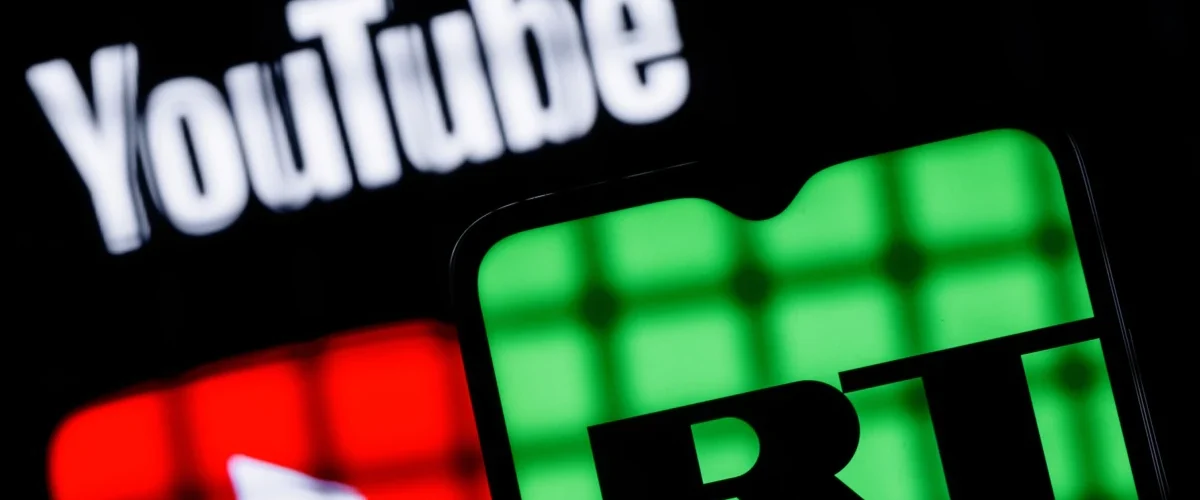Ukrainian President Volodymyr Zelenskiy says economic sanctions announced on April 6 are strong but are still not enough to bring an end to Russia’s invasion of Ukraine.
Speaking in his daily video address early on April 7, Zelenskiy urged the democratic world to go further by rejecting Russian oil and completely blocking Russian banks from the international finance system.
“Unless there is a truly painful sanctions package against Russia and the real supply of weapons we have requested multiple times, Russia will consider it a permit,” Zelenskiy said in the address, which was posted on Facebook. “Like permission to move on. Like permission to step on. As a permission to start a new bloody wave in Donbas.”
He added that the failure of countries to quickly agree to an embargo of Russian oil was costing Ukrainian lives.
Presidential aide Andriy Yermak said earlier that Ukraine’s allies must go further than the sanctions announced on April 6.
“Sanctions against Russia must be ruinous enough for us to end this terrible war,” he said. “My goal is to impose an embargo on the supply to Russia of technology, equipment, minerals, and ores (and) rare earth dual-use minerals and thus stop the production of weapons in Russia.”
The United States and Britain on April 6 announced new measures such as sanctions on President Vladimir Putin’s two adult daughters in an unprecedented move by Western governments trying to pressure Moscow.
A senior U.S. administration official said on April 6 that the wife and daughter of Foreign Minister Sergei Lavrov were also being hit with financial sanctions.
More broadly, the banking giant Sberbank, which is Russia’s largest financial institution, is being hit with full blocking sanctions, as well as the private Alfa Bank, whose main shareholders have long been considered close to Putin’s inner circle.
Live Briefing: Russia’s Invasion Of Ukraine
RFE/RL’s Live Briefing gives you all of the major developments on Russia’s invasion, how Kyiv is fighting back, the plight of civilians, and Western reaction. For all of RFE/RL’s coverage of the war, click here.
Britain on April 6 also announced new sanctions, including asset freezes targeting Sberbank and the Credit Bank of Moscow, and designated eight Russian oligarchs who the British government says are used by Putin “to prop up his war economy.”
“Together with our allies, we are showing the Russian elite that they cannot wash their hands of the atrocities committed on Putin’s orders,” British Foreign Secretary Liz Truss said.
The European Union was expected to make a similar announcement on April 7.
The senior U.S. administration official who laid out the sanctions in a call with reporters said the United States believes that many of Putin’s assets are hidden with family members and that’s why his daughters were being targeted.
In addition to sanctions aimed at Putin’s daughters and Lavrov’s wife and daughter, the new sanctions also target Prime Minister Mikhail Mishustin and 20 other members of Russia’s Security Council, including Dmitry Medvedev, a former president and prime minister.
The penalties freeze any assets the individuals named hold in the United States, the Treasury Department said. They also block all transactions that involve any of their property by people in the United States.
Since Russia’s 2014 annexation of Ukraine’s Crimea Peninsula, economic sanctions have been the preferred tool for punishing Russian officials and for trying to force changes in Kremlin policies.
Since Russia invaded Ukraine on February 24, Washington has imposed financial penalties on more than 140 so-called oligarchs — powerful, wealthy, politically connected businessmen — and their family members, as well as more than 400 government officials and lawmakers.
Putin himself was hit with sanctions by the West for the first time ever on February 25, a day after Russian forces invaded Ukraine in what has turned into the largest military operation in Europe since World War II.
Aside from damaging Russia’s economy, the sanctions have had little apparent effect on Russia’s actions in Ukraine or elsewhere. That’s prompted a growing chorus of lawmakers, activists, and others to call for harsher sanctions to target people even closer to Putin.
The two daughters Putin has with his now ex-wife, Lyudmila — Yekaterina Tikhonova and Maria Vorontsova — were kept out of public view for years.
Vorontsova, 37, who is believed to have a medical degree, is the co-owner of a health-care investment company aiming to build a new, state-of-the-art medical center near St. Petersburg.
She was married to a Dutch citizen, though it is unclear whether they are still together.
Tikhonova, 35, gained attention in the late 2010s when she began to perform as an acrobatic dancer and competitive rock-and-roll dancer.
She later became the director of Innopraktika, a $1.7 billion government-backed project to build a science and research center at Moscow State University.
Tikhonova was previously married to the son of a powerful, Kremlin-connected banker named Nikolai Shamalov. The couple reportedly divorced in 2018.
Last year, Tikhonova appeared in public speaking at the St. Petersburg International Economic Forum. She was not identified in press materials or on Russian media as being Putin’s daughter.
Though he was seen regularly with Lyudmila when they were married, Putin has made few comments about his family over the years.
In 2017, during his annual televised call-in show, Putin said his daughters were “involved in science and education,” and that they “lived normal, everyday lives.”


















